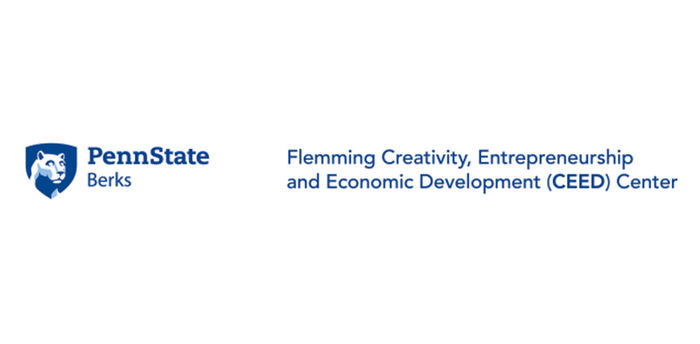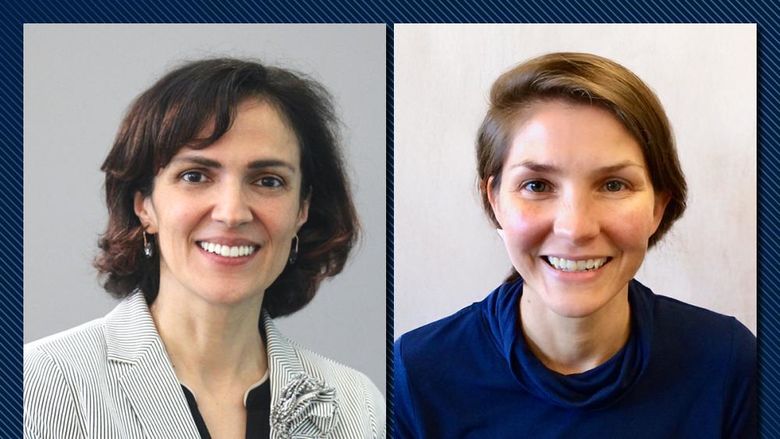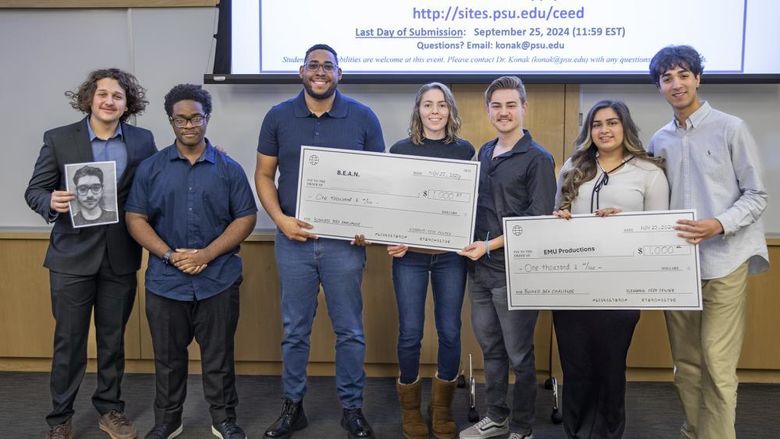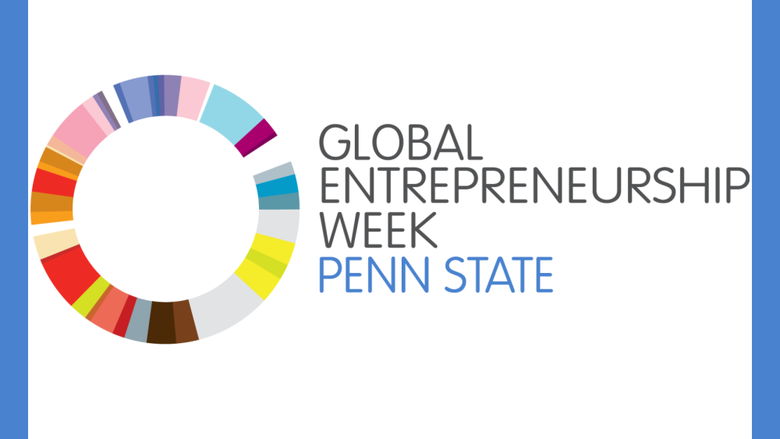
WYOMISSING, Pa. — The Penn State Berks Flemming Creativity, Entrepreneurship, and Economic Development (CEED) Center is inspiring an entrepreneurial spirit and innovative mindset among students and community members. The Flemming CEED Center has recently been awarded a grant for its proposal titled “Cultivating Innovative Thinking Skills in STEM Education” from the National Science Foundation (NSF). The total amount of the grant is $286,185, and it will be effective from Oct. 15, 2021, to Sept. 30, 2024.
This project -- a collaborative initiative between Penn State Berks, Lehigh University and Cornell University -- aims to serve the national interest by enhancing innovative thinking skills in STEM education, which is important for sustaining the nation’s global leadership in science and engineering.
With increased attention to entrepreneurship and innovation in STEM programs, higher education institutions and foundations have increased their offerings of co-curricular programs, such as design challenges, hackathons, start-up competitions, boot camps, and accelerator programs, to recruit and support student innovators.
The principal investigator is Sadan Kulturel-Konak, professor of management information systems, director of the Flemming CEED Center, and program chair of the entrepreneurship and innovation minor, Penn State Berks. Co-principal investigators include Abdullah Konak, distinguished professor of information sciences and technology, Penn State Berks; Khanjan Mehta, vice provost for creative inquiry and director of the Mountaintop Initiative, Lehigh University; and David Schneider, director of the master of engineering program for systems engineering, Cornell University.
Kulturel-Konak explains “The main hypothesis of the project is that participating in student innovation competitions and challenges (ICCs) is a transformative experience for students as they gain deeper self-awareness of their capabilities in innovation and become more open and critically minded. To answer research questions related to this main hypothesis, the project puts forward a research model that synthesizes the Transformative Learning Theory and Kern Entrepreneurial Engineering Network’s 3Cs (Curiosity, Connections, Creating Value) Framework. The proposed model and its related scales will quantify the extent to which students’ experiences have been transformative in terms of cultivating an innovation mindset. In this sense, the project will be a pioneer in exploring the nexus between a transformative experience and shifts in the innovation mindset.”
According to the project team, the project outcomes will generate new knowledge about how different aspects of ICCs can facilitate transformations in students’ mindsets toward innovation, thereby laying the groundwork to improve ICCs’ potential for building student agency and self-efficacy. Although the project focuses on ICCs, the proposed model and its related scales can also be applied to a broader set of co-curricular and informal learning experiences such as internships, co-ops, undergraduate research, and international exchange programs, which are expected to be transformational for students. Thus, the expected research outcomes can promote fundamental research in other STEM learning environments.
The project’s research activities are organized in the following interconnected research thrusts: capturing students’ experiences in ICCs through interviews; developing the Transformative Learning Scale for the Innovation Mindset (TLSIM) to assess transformations in students’ mindset toward innovation; validating TLSIM in various ICCs and other experiential learning settings; and investigating the relationships among attributes of ICCs, student backgrounds, transformative learning processes, and student outcomes.
For additional information, contact Sadan Kulturel-Konak at sxk70@psu.edu.
About NSF IUSE initiative
The National Science Foundation (NSF) plays a leadership role in developing and implementing efforts to enhance and improve STEM education in the United States. Through the NSF Improving Undergraduate STEM Education (IUSE) initiative, the agency continues to make a substantial commitment to the highest caliber undergraduate STEM education through a Foundation-wide framework of investments. The IUSE: EHR is a core NSF STEM education program that seeks to promote novel, creative, and transformative approaches to generating and using new knowledge about STEM teaching and learning to improve STEM education for undergraduate students.
About the Flemming CEED Center
The Flemming Creativity, Entrepreneurship, and Economic Development (CEED) Center’s mission is to inspire an entrepreneurial spirit and innovative mindset in the Penn State Berks community and to foster economic growth and development in the Greater Reading area. The CEED Center provides student entrepreneurs with an incubator in which to develop their startup ideas. The Center provides mentoring from faculty, as well as volunteers from the local business community. CEED Center programing includes Creativity Training Workshops, the Customer Discovery Lab, the STEM Business Idea Challenge, and the Student Enterprise Award.





